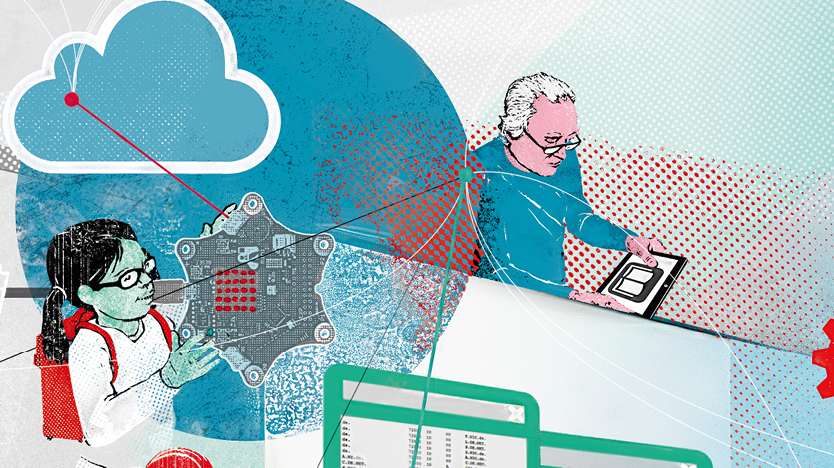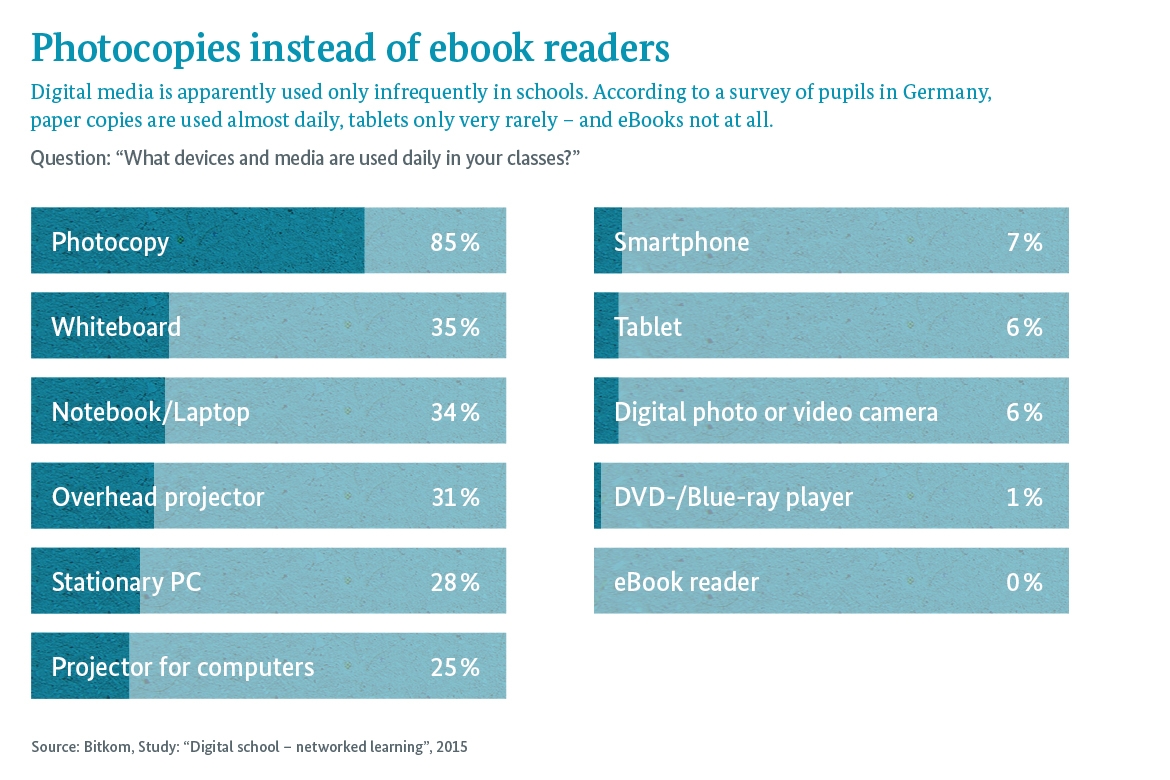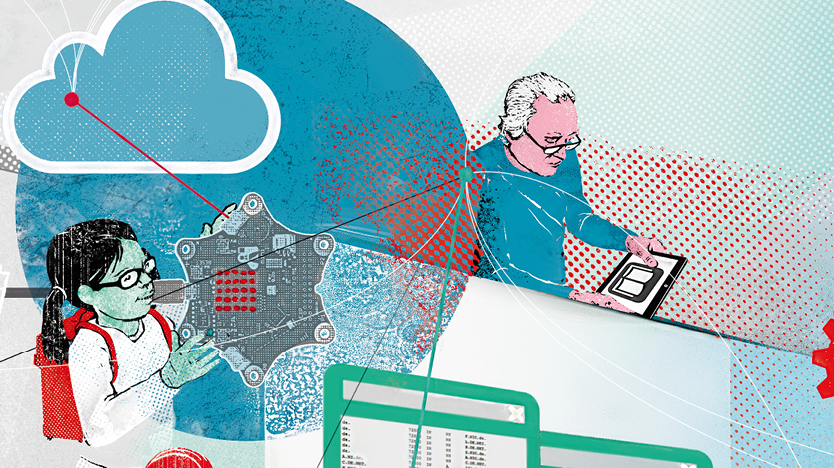
© BMWK / Herr Müller
It is possible that people of school age today have not yet heard of a job they might take in the future. In only five years there will be jobs that we haven’t heard of yet. This makes skills for a successful life in a digital world more important. Knowing how to use social media platforms, video and design programs, create digital content, develop networks, conduct big Data analyses and such complex tasks as software programming and knowledge of robotics: these are skills that will become more and more important in order to be successful in the job market of the future. The foundation for these skills can be learning at play in pre-school, then strengthening these skills in school, and later acquiring in-depth knowledge and specific competency by means of higher education classes, continuing education and on-the-job training.

© BMWK
Leaning about – and with the help of – digitalisation
Digitalisation is making life-long learning possible for all levels of society – and a necessity. However, new teaching content and better equipment in schools and in training is required. There is a lot to be done in this respect. In an international comparison on use of digital devices in schools, Germany ranges in the lowest third. The Federal Ministry for Economic Affairs and Climate Action (BMWK) has worked out a whole number of recommendations and proposals on digital education. One very important aspect is training for teachers. Often, pupils know more about the latest digital technology than their teachers. According to a current D21 special study, teachers themselves have a similar perception of the situation. Sixty-two percent feel that their own deficiencies in IT skills pose the largest hurdle to digital dissemination of knowledge to pupils – who, as “digital natives” grew up with such things. Vocational schools also need improvement: 40 % of the schools have no access to wireless LAN. We therefore see an urgent need to equip vocational schools digitally so that the pupils can receive proper instruction on Industry 4.0.

© BMWK
Education for all
Digitalisation is pushing a democratic evolution in education. Never before have so many people had access to knowledge. Digitalisation changes the way we learn. Already nowadays millions of people are taking continuing education classes online. They take advantage of YouTube tutorials and online language courses, but also MOOCs (Massive Open Online Courses) at online universities. For example, the Coursera platform has 15 million students. The Khan Academy in the US – free of charge – has already registered more than 500 million video views on YouTube globally.
Special sponsoring for girls
To increase participation in digitalisation worldwide, we want to use the G20 presidency to create an initiative for supporting digital skills during apprenticeship. It will build on a G20 initiative already under way for improving the quality of teaching. A particular focus is on closing the gap between the sexes in education. Currently, only 24 % of all jobs in the field of technology are held by women. The synergies offered by the initiative “eSkills4girls” aims to improve job opportunities in developing countries for girls and women in the digital and technology fields by providing funding for digital education and IT skills.
| Minicomputer Calliope – Digital training for primary schools |
|---|
|
It is barely as large as a hand: the star-shaped minicomputer Calliope mini helps teach primary school pupils how to program. With just a few clicks, children can even write their first programs. Calliope mini can be used for controlling a robot, for example. Children learn at play how circuits, software, sensors and computers work in general. Calliope mini was developed with the support of the BMWK, and is distributed free of charge to third-graders – initially in the Federal state Saarland, where all children in the third grade are given access to a Calliope mini, free of charge. By the end of 2017, pilot schools in all of the German Laender should be equipped with Calliope mini. The goal is to introduce 100,000 of these microcontrollers into the schools by the end of 2017. For more information please see http://bit.ly/2lul047 and www.calliope.cc. |
![To homepage Logo [EN]de.digital](https://www.de.digital/SiteGlobals/DIGITAL/StyleBundles/Bilder/sublogo_en.png?__blob=normal&v=1)





